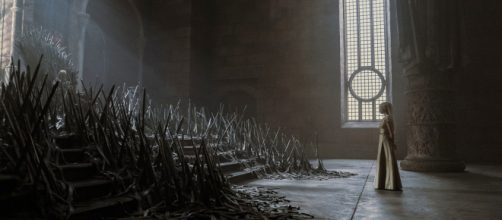HBO's new series "House of the Dragon" was recently launched. Its debut scored big with viewers and critics alike, including drawing in a historic audience for a new HBO series.
The series is a prequel to "Game of Thrones." If you somehow missed it, "Game of Thrones" became a phenomenon. For most of its run, it was beloved by its fanbase and similarly adored by critics. And then the final season happened. Essentially a disaster, many onlookers have considered the series' legacy tarnished by it. Others seem to think the early success of 'House of the Dragon' erases the mess left by the original series ending.
It doesn't. Beware of spoilers to come.
A prequel, at least typically, does not change previously established events
The basal premise of a prequel is that it shows what happened before something big happened. It doesn't usually alter said big happenings. And in the case of "Game of Thrones", that is a problem.
Now, with a franchise so big, it was inevitable that there would be differing opinions on the "Thrones" ending. That it would be so almost universally loathed was apparently a bit of a surprise. To the point that even cast members of the series called for a do-over. George R.R. Martin, the author of the novels upon which the series was based, has actively distanced himself from it.
The various reasons as to why fans were left so seething are too many to detail here.
But we can go into some of them. Such as the out-of-character behavior and downright contradictory events. Seriously, we go from 'Bran can't be the lord of anything' to 'Bran was meant to be king all along.' From Jon bending the knee to Daenerys because she deserved it, to it to get her dragons. And so on.
Another whopper was the culmination of Jaime Lannister's redemption arc, followed by an abrupt backslide. But the biggest, most egregious offense was the turn of events for Daenerys Targaryen.
Daenerys rose to be the series' most powerful, beloved, and hugely popular character. For years, audiences were repeatedly reminded that she was not her father, the 'Mad King'. And then that changed at an obscenely rapid pace.
Going from benevolent to supposedly mad to mass murderer in roughly two blinks of an eye. Then slain by Jon, the love of her life, whose final season arc also perturbed many.
The ending for Daenerys, and the rate at which it occurred, was exceptionally upsetting for many fans. And unless something changes regarding things like this, it does not change the legacy of "Thrones."
'House of the Dragon' would not have started so well if Daenerys weren't so popular
There are some basic things that those claiming the new series might exonerate the original. A glaringly obvious one is that the prequel is about Daenerys' ancestors. There wouldn't be the sort of interest in it that there is if Daenerys weren't so revered.
To take a note from Comic Book Resources, "love for Daenerys is the only reason 'House of the Dragon' exists."
Whatever success the prequel might achieve, it is inextricably attached to the popularity of Daenerys. The new series seems to grasp this clearly. Its debut episode was heavy, with references and tributes to the character. As indicated by Yahoo, one of the first things seen on the show was a showcased spotlight of the character's name.
"House of the Dragon" has also caused some (further) feelings of melancholy among the fans and left them to dream of what could've been. Some of it is happening on its own, and some of it apparently intended by the writers.
There are other "Game of Thrones"-related projects in development.
And there are clear ways that Daenerys' story could still have more chapters to it. The likelihood of this has seemed to ebb and flow over time. A Jon-centric series in the works provides obvious opportunities. Meanwhile, fans are left to hope and wait.


